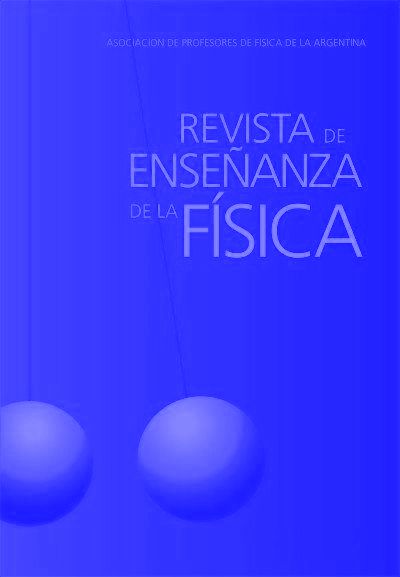Experimental physics for engineering, the challenge of implementing feedback in the laboratory
DOI:
https://doi.org/10.55767/2451.6007.v36.n.47270Keywords:
Physics laboratories, Feedback, EngineeringAbstract
Experimental activity in physics consists of carrying out multiple experiments in laboratories, evaluated through the construction of the output report or experimental report. The sessions are periodic during the semester with various guided experiments, but it has become critical in some institutions, the increase in students and not infrastructure and together with the effect of postpandemic education, a complete reformulation of this teaching activity is produced. This work presents an exploratory research with laboratory physics teachers in the first semester of engineering, belonging to a common plan of an university in Chile. A methodology was applied that consists of carrying out the experimental activity and in the following session a feedback lecture day, allowing shortcomings to be detected and promoting support in an intermediate stage of the experience, prior to the summative evaluation of the document. From the research it is observed that there is a positive assessment from the teachers, and it is stated that an academic progression of the students is identified, along with strengthening their autonomy in the development of activities.
References
Ahmed, H.D. y Asiksoy, G. (2021). The Effects of Gamified Flipped Learning Method on Student’s Innovation Skills, SelfEfficacy towards Virtual Physics Lab Course and Perceptions. Sustainability, 13, 10163. doi: https://doi.org/10.3390/su131810163
Becerra Labra, C., y Silva Arias, L. A. (2024). Trabajo de laboratorio en física y química a través de un enfoque problematizado. Revista de Enseñanza de La Física, 36(1), 53–66. doi: https://doi.org/10.55767/2451.6007.v36.n1.45312
Buendía Eisman, L., Colás Bravo, M. P. y Hernández Pina, F. (1998). Métodos de Investigación en Psicopedagogía. Madrid: McGraw-Hill.
Donovan P. (2014). Closing the feedback loop: physics undergraduates’ use of feedback comments on laboratory coursework. Assessment & Evaluation in Higher Education, 39(8), 1017-1029. doi: 10.1080/02602938.2014.881979
Feisel L. y Rosa A. (2005). The Role of the Laboratory in Undergraduate Engineering Education. Journal of Engineering Education, 94, 121-130. doi: https://doi.org/10.1002/j.2168-9830.2005.tb00833.x
Gómez-Tejedor J., Vidaurre A., Tort-Ausina I., Molina-Mateo J., Serrano M. A., Meseguer-Dueñas J., Martínez R., Quiles S. y Riera J. (2020). Effectiveness of flip teaching on engineering students' performance in the physics lab. Computers & Education, 144, 103708. doi: https://doi.org/10.1016/j.compedu.2019.103708
Hernández Carrera, R. M. (2014). La investigación cualitativa a través de entrevistas: Su análisis mediante la teoría fundamentada. Cuestiones pedagógicas: Revista de Ciencias de la Educación, 23, 187-210.
Hofstein, A., y Lunetta, V. N. (2003). The laboratory in science education: Foundations for the twenty-first century. Science Education, 88(1), 28–54. doi: 10.1002/sce.10106
Otzen, T. y Manterola, C. (2017). Técnicas de Muestreo sobre una Población a Estudio. International Journal of Morphology, 35(1), 227-232. https://doi.org/10.4067/S0717-95022017000100037
Pereira Pérez, Z. (2011). Los diseños de método mixto en la investigación en educación: Una experiencia concreta. Revista Electrónica Educare, 15(1), 15-29.
Pérez Serrano, G. (1994). Investigación cualitativa: Retos e interrogantes. Madrid: La Muralla.
Pollard B., Hobbs R., Henderson R., Caballero M. y Lewandowski H. J. (2021). Introductory physics lab instructors’ perspectives on measurement uncertainty. Physical Review Physics Education Research, 17(1), 010133.
Sepúlveda N. y Carrasco J. (2023). Cuaderno de Laboratorio Física I. Chile: Universidad Central de Chile.
Sepúlveda N. y García Y. (2022). Aprendizaje Basado en Proyectos con Arduino. Chile: Universidad Central de Chile.
Sobhanzadeh M., Kalman C. y Thompson R. (2017). Labatorials in introductory physics courses. European Journal of Physics, 38(6), 065702.
doi: 10.1088/1361-6404/aa8757
Strauss, A. y Corbin, J. (2002). Bases de la investigación cualitativa. Técnicas y procedimientos para desarrollar la teoría fundamentada. Medellín, Colombia: Editorial Universidad de Antioquia.
Zacharias S., Klein P., Lehtinen A., Müller A., Pirinen P., RončevićL., y Sušac A. (2023). Physics lab courses under digital transformation: A trinational survey among university lab instructors about the role of new digital technologies and learning objectives. Physical Review Physics Education Research, 19(2), 020159. doi: 10.1103/PhysRevPhysEducRes.19.020159
Downloads
Published
Issue
Section
License

This work is licensed under a Creative Commons Attribution-NonCommercial-NoDerivatives 4.0 International License.
Aquellos autores/as que tengan publicaciones con esta revista, aceptan los términos siguientes:Los autores/as conservarán sus derechos de copiar y redistribuir el material, bajo los términos estipulados en la Licencia de reconocimiento, no comercial, sin obras derivadas de Creative Commons que permite a terceros compartir la obra bajo las siguientes condiciones:
- Reconocimiento — Debe reconocer adecuadamente la autoría, proporcionar un enlace a la licencia e indicar si se han realizado cambios. Puede hacerlo de cualquier manera razonable, pero no de una manera que sugiera que tiene el apoyo del licenciador o lo recibe por el uso que hace.
- NoComercial — No puede utilizar el material para una finalidad comercial.
- SinObraDerivada — Si remezcla, transforma o crea a partir del material, no puede difundir el material modificado.
- Los autores/as podrán adoptar otros acuerdos de licencia no exclusiva de distribución de la versión de la obra publicada (p. ej.: depositarla en un archivo telemático institucional o publicarla en un volumen monográfico) siempre que se indique la publicación inicial en esta revista.
- Se permite y recomienda a los autores/as difundir su obra a través de Internet (p. ej.: en archivos telemáticos institucionales o en su página web) antes y durante el proceso de envío, lo cual puede producir intercambios interesantes y aumentar las citas de la obra publicada. (Véase El efecto del acceso abierto).










